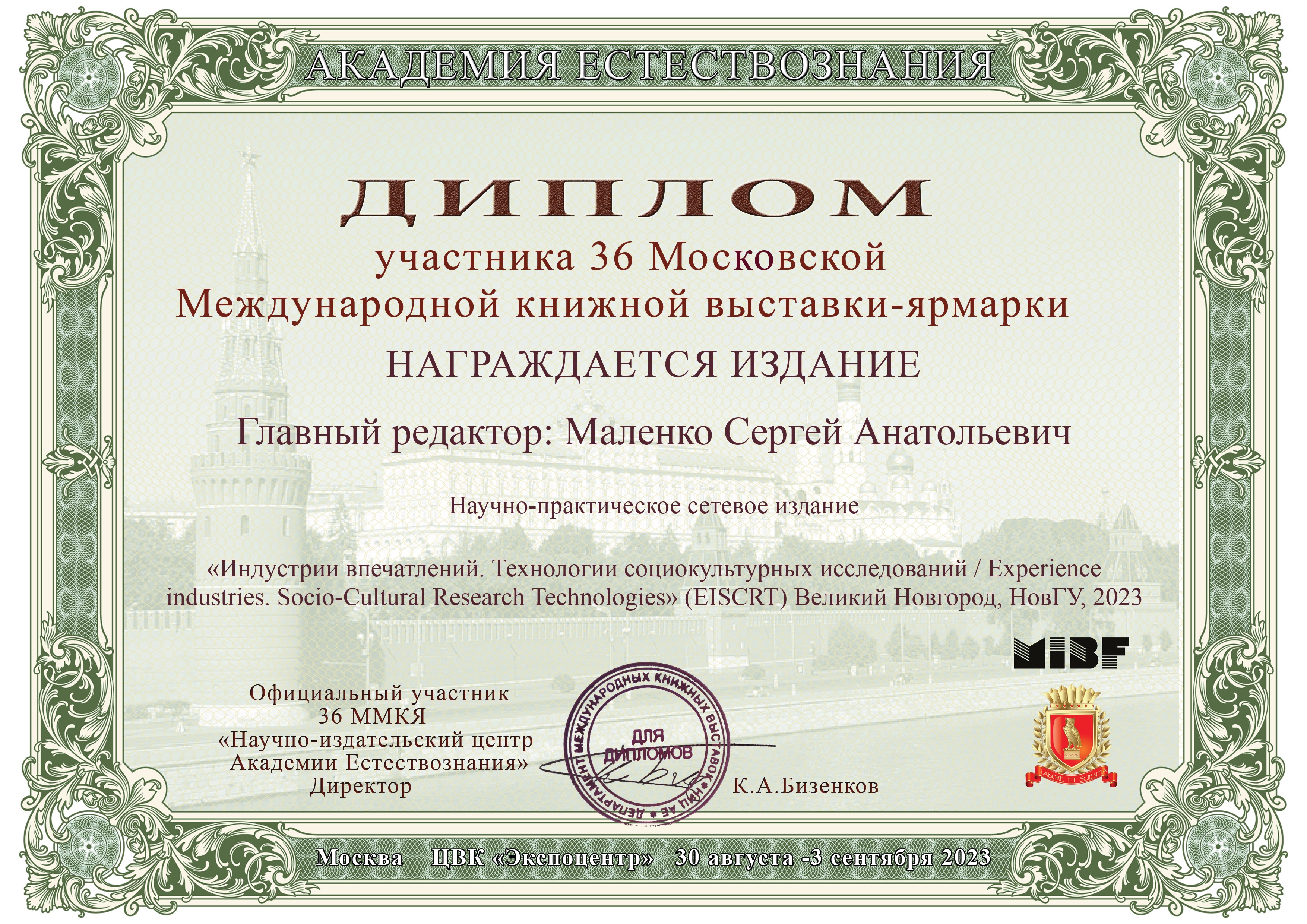REPRESENTATIONS OF EVERYDAY LIFE AND IMAGES OF THE TECHNOLOGICAL FUTURE: FOLLOWING COMMENTS ON SOCIAL MEDIA
DOI:
https://doi.org/10.34680/EISCRT-2024-2(7)-226-260Keywords:
image of the future, technology, well-being, Russia, values, everyday lifeAbstract
Technological innovations and achievements of our country have a different impact on the mass “consumer” of information, who tends to express their point of view precisely in “digits”. Technological progress determines the discourse of tomorrow, but at the same time, the picture remains unclear regarding the image of the future, which is represented in the contexts of the present and in everyday life. In order to conduct a comprehensive analysis of the representations of everyday life in social media (VK), which form the process of planning the future based on disciplinary and symbolic spaces (in relation to the “technological well-being of Russia”), the authors developed a three-stage complex method (collection, structuring and analysis of social network comments) in relation to the fundamental part of the study (theoretical basis). The article concludes that despite the complexity of analyzing digital comments, it is possible to identify those trigger points that can provoke negative connotations among users regarding specific technological achievements. It is concluded that propositional attitudes based on opinions and statements in the form of comments on a social network represent a representation of everyday life, which forms value-semantic attitudes regarding images of the future (including the “technological well-being of Russia”).
For citation:
Shavlokhova, A. A., & Bragin, A. D. (2024). Representations of everyday life and images of the technological future: following comments on social media. Experience industries. Socio-Cultural Research Technologies (EISCRT), 2 (7), 226-260. (In Russian). https://doi.org/10.34680/EISCRT-2024-2(7)-226-260








